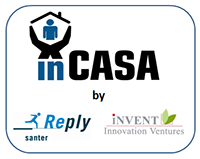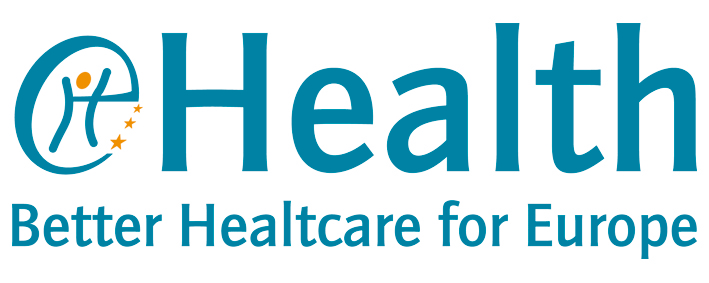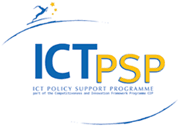Hot Spot 4
On 6th June 2013, inCASA will be represented by In-JeT at The Danish Welfare Technology Exhibition and Conference. In-JeT will have an exhibition stand demonstrating the project’s technical solution and results. Specifically, the transferability capabilities of inCASA will be demonstrated using the results from the municipality of Skive who is currently testing the inCASA solution. The demonstration will include the touch screen and some of the devices used by chronic elderly patients in Skive and visitors to the stand will have the opportunity to try the devices themselves. In addition to the exhibition, representatives from Skive municipality will, in cooperation with In-JeT, give a presentation at the conference about their experiences with using the inCASA solution.
The annual conference is aimed at Danish municipal and regional healthcare and social care staff working with telemedicine. The Minister for Economic Affairs and the Interior, Margrethe Vestager, and former Health Minister, Arne Rolighed, are among the many prominent speakers at the conference. The programme can be downloaded here (in Danish).
Hot Spot 3
The Italian national Exploitation Event was organized in the framework of the eHealth conference that was held on the 28th of May 2013 in Rome. REPLY, INVENT and ATC sponsored the event all day, by placing an inCASA stand. The Conference was sponsored mainly by: The Ministry of Health
The Ministry of Economic Development
SIRM: an Italian association on Medical Radiology
AICC: an Italian association on Clinical Engineering
Moreover, a specific inCASA workshop was organized within the event demonstrating the inCASA approach, the technical solution, the services and evidence of the inCASA results, presented by involved inCASA Pilot professionals.
The full agenda of the inCASA session in the eHealth Forum is available online
Hot Spot 2
INSERM, along with TID and REPLY, submitted an abstract paper for the annual meeting of the American Society of Clinical Oncology (ASCO). The paper was accepted and inCASA project was presented at a very important event in the healthcare domain on 2nd of June 2012 at Chicago. The inCASA poster can be found here.
The submitted work is focused on the French pilot study and is entitled 'The European inCASA telecare-telehealth electronic platform for the daily assessment of symptoms, weight and activity in cancer patients on chronotherapy at home.'
Additional information regarding the INSERM pilot site activities can be viewed at http://rbc.vjf.inserm.fr
Hot Spot 1
First pilot in planning: The first inCASA pilot is being planned with the partner Agenzia Territoriale per la casa della Provincia di Torino. ATC Torino is the public body with responsibility for social and public housing in the area of Torino and its surroundings. The Pilot will focus on user behaviour, providing an useful profile to search and determine behaviour that could lead to health problems.
More...
The annual conference is aimed at Danish municipal and regional healthcare and social care staff working with telemedicine. The Minister for Economic Affairs and the Interior, Margrethe Vestager, and former Health Minister, Arne Rolighed, are among the many prominent speakers at the conference. The programme can be downloaded here (in Danish).
Hot Spot 3

The Italian national Exploitation Event was organized in the framework of the eHealth conference that was held on the 28th of May 2013 in Rome. REPLY, INVENT and ATC sponsored the event all day, by placing an inCASA stand. The Conference was sponsored mainly by:
Moreover, a specific inCASA workshop was organized within the event demonstrating the inCASA approach, the technical solution, the services and evidence of the inCASA results, presented by involved inCASA Pilot professionals.
The full agenda of the inCASA session in the eHealth Forum is available online
Hot Spot 2

INSERM, along with TID and REPLY, submitted an abstract paper for the annual meeting of the American Society of Clinical Oncology (ASCO). The paper was accepted and inCASA project was presented at a very important event in the healthcare domain on 2nd of June 2012 at Chicago. The inCASA poster can be found here.
The submitted work is focused on the French pilot study and is entitled 'The European inCASA telecare-telehealth electronic platform for the daily assessment of symptoms, weight and activity in cancer patients on chronotherapy at home.'
Additional information regarding the INSERM pilot site activities can be viewed at http://rbc.vjf.inserm.fr
Hot Spot 1

First pilot in planning: The first inCASA pilot is being planned with the partner Agenzia Territoriale per la casa della Provincia di Torino. ATC Torino is the public body with responsibility for social and public housing in the area of Torino and its surroundings. The Pilot will focus on user behaviour, providing an useful profile to search and determine behaviour that could lead to health problems.
More...
Affiliations
inCASA is affilliated with these programs and organisations:
The inCASA project supports the Commissions activities in ICT for Health: eHealth.

The inCASA platform allows for the creation of inclusive applications with accessibility for all. The project supports the Commissions campaign: eInclusion - be part of it!

The inCASA project supports the Ageing Well Thematic Network which aims at creating a Community of Actors interested in improving the life of Elderly People by promoting the market uptake of ICT solutions for Ageing Well!

The inCASA project supports the Commissions activities in ICT for Health: eHealth.

The inCASA platform allows for the creation of inclusive applications with accessibility for all. The project supports the Commissions campaign: eInclusion - be part of it!

The inCASA project supports the Ageing Well Thematic Network which aims at creating a Community of Actors interested in improving the life of Elderly People by promoting the market uptake of ICT solutions for Ageing Well!

Sign In
inCASA for Senior Citizens
Quality of life is an extended concept aiming at evaluating life with all its aspects. That is why it is considered within the field of interest of almost every scientific discipline, life practice and activity in society. Quality of life is the quality of the relations (active and passive relations) between an individual and his surrounding, with its both objective and subjective extents.
Increasing the quality of life is one of the main objectives of inCASA project. Together with aging in human life, some changes occur, and these changes affect the quality of life. Besides, some other problems also come out as one gets older and they are determinants in terms of the quality of life.
The quality of life, for the average population, can be defined as an increasing welfare status of people economically, socially, psychologically and so on.
The World Health Organization (WHO) defines the quality of life in such a way that individuals perceive their lives within their cultural context, and their values of systems, objectives, standards and interests throughout their lives. The definition consists of six fields:
Except that for the last one, inCASA could have a major role in the other topics concerning the quality of life of senior citizens.
Physical health, psychological status and social relations could be preserved by an integrated care plan that could contribute to increase alimentary, hygienic and social lifestyle, thanks to a focused profiling activity and supporting services such as social connectedness.
The level of independent living could be increased by two aspects: by one side the presence of a monitoring system in home environment could increase individual self-confidence leading elderly person to face everyday activities with consciousness to be well-protected and helping the Service Provider to plan for social activities together with local social services. By the other side, a clinical tele-monitoring with an integrated care plan could help senior citizens suffering of diseases to continue their life at home without the need to go often to the hospital to take measurements and to monitor their diseases.
Furthermore, home monitoring (e.g. water, gas, smoke and carbon monoxide) increases security inside senior citizen’s home. With the introduction of Value Added Services, environmental features could be streamlined by home automation, which can automate routines and give the best home scenario for each profiled activity (going away from home, going to bed, wake up in the morning, etc.). Additional personal services (like shopping aid, taxi reservation, etc.) can upgrade the basic services to give to senior citizens a 360 degree help to their lives.
All these features aim at reducing voluntary or premature hospitalization, because elderly people living home alone will increase self-confidence and trust in deployed services, will be continuously monitored in their own world with unobtrusive technologies and customized day-by-day planning.
See also...
inCASA for SMEs
inCASA for Scientific Communities
Increasing the quality of life is one of the main objectives of inCASA project. Together with aging in human life, some changes occur, and these changes affect the quality of life. Besides, some other problems also come out as one gets older and they are determinants in terms of the quality of life.
The quality of life, for the average population, can be defined as an increasing welfare status of people economically, socially, psychologically and so on.
The World Health Organization (WHO) defines the quality of life in such a way that individuals perceive their lives within their cultural context, and their values of systems, objectives, standards and interests throughout their lives. The definition consists of six fields:
- Physical health
- Psychological Status
- Level of independence
- Social relations
- Environmental features
- Spiritual features
Except that for the last one, inCASA could have a major role in the other topics concerning the quality of life of senior citizens.
Physical health, psychological status and social relations could be preserved by an integrated care plan that could contribute to increase alimentary, hygienic and social lifestyle, thanks to a focused profiling activity and supporting services such as social connectedness.
The level of independent living could be increased by two aspects: by one side the presence of a monitoring system in home environment could increase individual self-confidence leading elderly person to face everyday activities with consciousness to be well-protected and helping the Service Provider to plan for social activities together with local social services. By the other side, a clinical tele-monitoring with an integrated care plan could help senior citizens suffering of diseases to continue their life at home without the need to go often to the hospital to take measurements and to monitor their diseases.
Furthermore, home monitoring (e.g. water, gas, smoke and carbon monoxide) increases security inside senior citizen’s home. With the introduction of Value Added Services, environmental features could be streamlined by home automation, which can automate routines and give the best home scenario for each profiled activity (going away from home, going to bed, wake up in the morning, etc.). Additional personal services (like shopping aid, taxi reservation, etc.) can upgrade the basic services to give to senior citizens a 360 degree help to their lives.
All these features aim at reducing voluntary or premature hospitalization, because elderly people living home alone will increase self-confidence and trust in deployed services, will be continuously monitored in their own world with unobtrusive technologies and customized day-by-day planning.
See also...
inCASA for SMEs
inCASA for Scientific Communities
 |
 |
 Organizations involved Organizations involved |
|||||||
 |
 |
 |
 |
 |
 |
||||
 |
The inCASA project is partly funded by the European Commission under the ICT Policy Support Programme | See all... | |||||||

 Posted by
Posted by 